Are you feeling the crunch as deadlines loom closer? We've all been there, and sometimes life throws unexpected challenges our way. If you find yourself needing a little extra time to polish your work, requesting an extension might be the way to go. Keep reading to discover a simple letter template that can help you ask for that much-needed grace period!

Polite and respectful tone
Creating a request for an extension on submission requires careful wording to ensure a polite and respectful tone. Here's a detailed description for your request: When aiming to secure an extension for your submission, clarity and professionalism are paramount. Start with a respectful salutation addressing the appropriate individual or department, such as 'Dear Professor Smith,' or 'Dear Admissions Office.' Specify the original deadline date, for example, 'October 15, 2023.' Clearly articulate the reason for your request, citing specific circumstances such as personal challenges, health issues, or academic workload. Acknowledge the impact of your request and express understanding of their policies regarding extensions. Include a proposed new submission date, perhaps 'October 30, 2023,' to indicate your commitment to completing the work promptly. Conclude with expressions of gratitude for their consideration and an offer to provide any necessary documentation supporting your request, reiterating your respect for their time and policies.
Clear and concise request
Requesting an extension on submission deadlines can arise from various circumstances, such as unforeseen personal issues or academic challenges. A well-structured request should specify the original due date, the reason for the extension, and the new proposed deadline. Clarity is essential to ensure that the recipient understands your situation. Additionally, expressing gratitude for their consideration can foster goodwill in your communication. For example, if the original due date was October 1, 2023, and the new proposed date is October 15, 2023, being clear about the necessity for additional time can help justify the request.
Justification for extension
One common justification for requesting an extension on submission involves unforeseen personal circumstances that hinder timely completion. For example, a recent health issue, such as the flu or a more serious diagnosed condition, could lead to missed deadlines. Another reason could be the unexpected loss of a close family member, resulting in emotional distress and necessitating additional time to process the grief. Work-related commitments may also play a role, as increased responsibilities, project deadlines, or unexpected obligations can significantly reduce the availability of critical study or work hours. Additionally, technical difficulties, such as computer malfunctions or data loss, might impede timely submissions. In these scenarios, it is essential to communicate specific details and express genuine intent to maintain quality while ensuring the proposal or assignment meets the necessary standards.
Proposed new deadline
Submitting research papers often requires adherence to strict deadlines, a common practice in academic circles. Current academic schedules may demand project submissions by specific dates. For example, a proposed new deadline may be 30 days from the initially assigned date, allowing for comprehensive revisions. Researchers often experience unforeseen circumstances, such as unanticipated data discrepancies or personal emergencies. It is crucial to formally request an extension to ensure the quality and integrity of the work submitted. Using academic channels, such as an official email to the project coordinator or department head, is the ideal method for this communication.
Expression of gratitude
Amid pressing deadlines and rigorous academic demands, students often find themselves in need of time adjustments for assignment submissions. In such circumstances, expressing gratitude has a significant role in communication. When writing a request, including phrases that acknowledge the instructor's effort in accommodating student needs fosters a collaborative atmosphere. For instance, articulating appreciation for prior guidance or support enhances rapport. Additionally, referencing specific past instances of assistance (like helpful feedback on previous assignments) can further underline gratitude. Ultimately, a respectful tone that balances the request for an extension with sincere thanks can lead to a more favorable response.

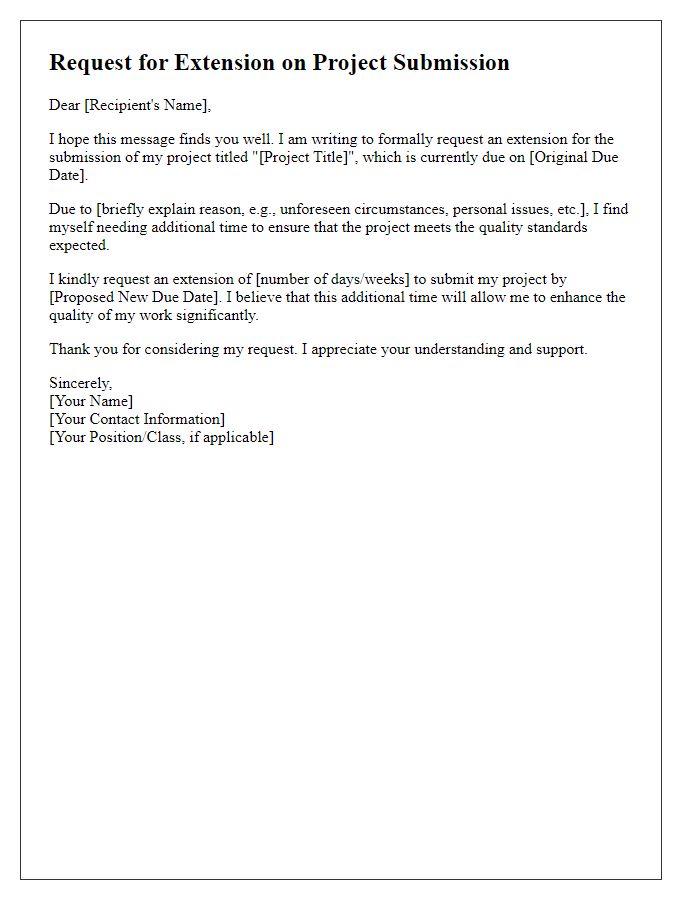
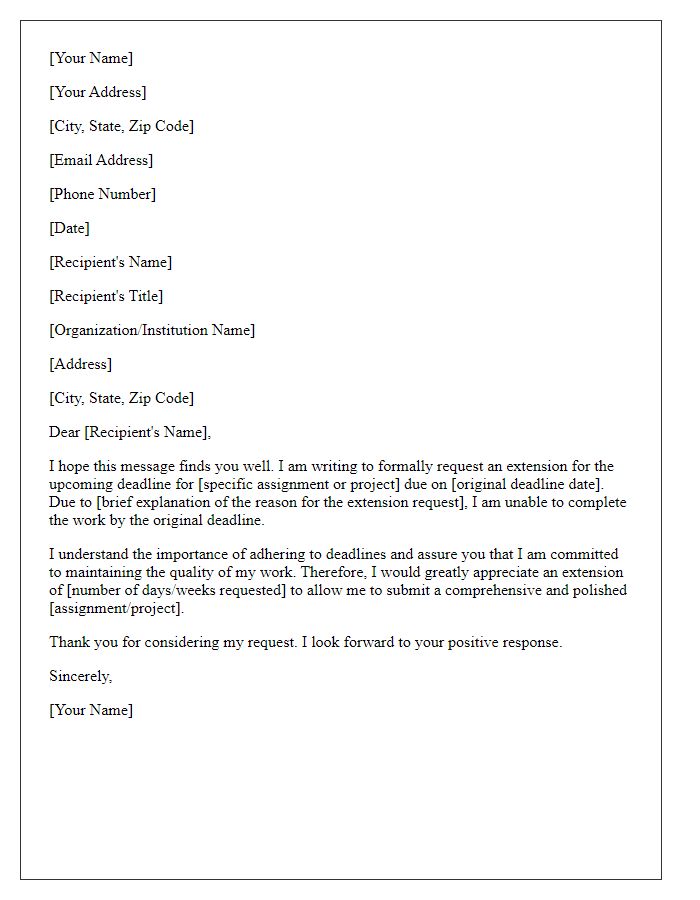
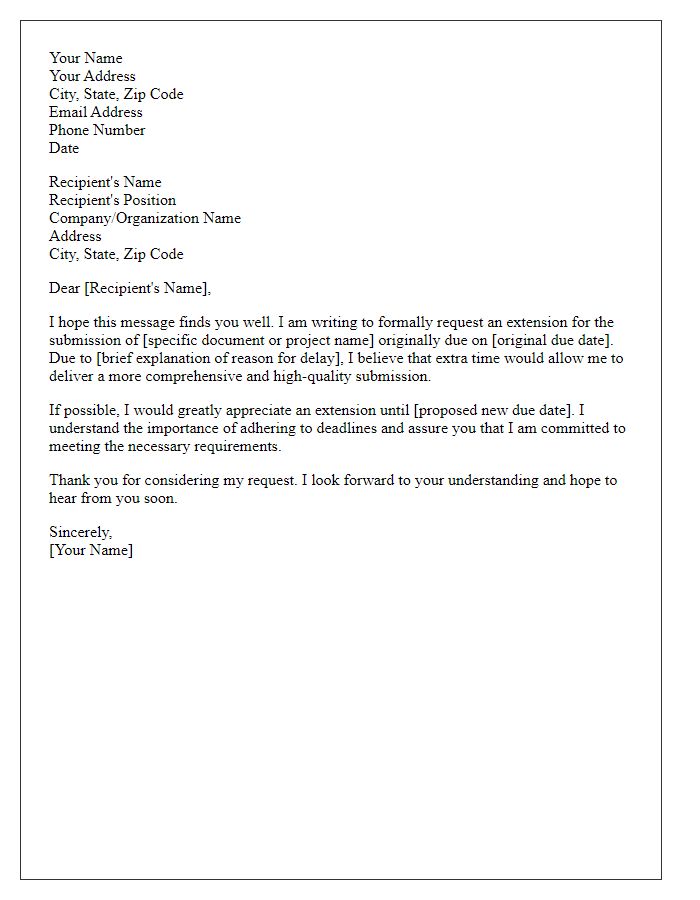
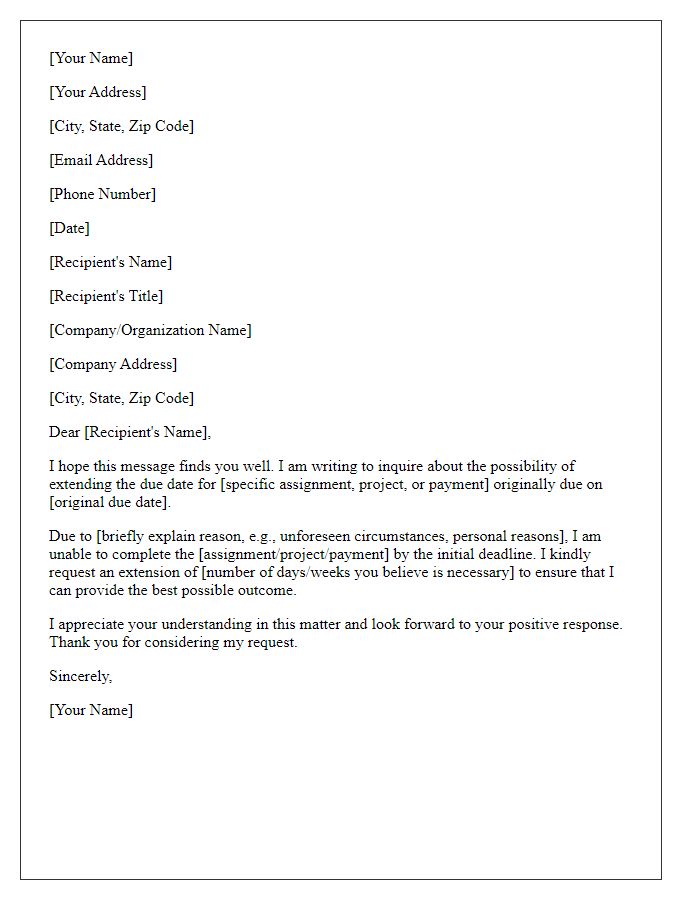
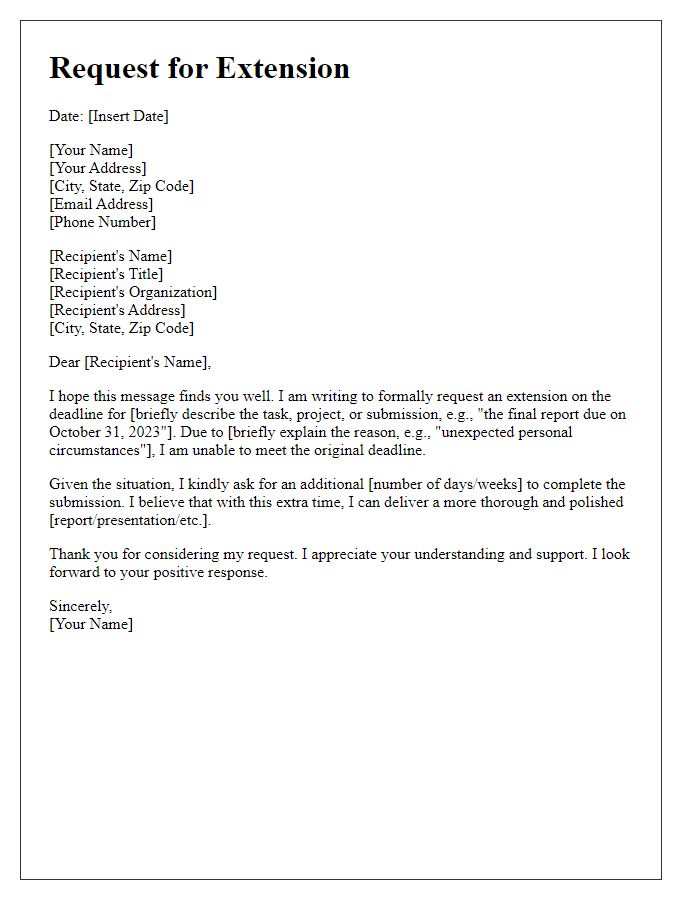
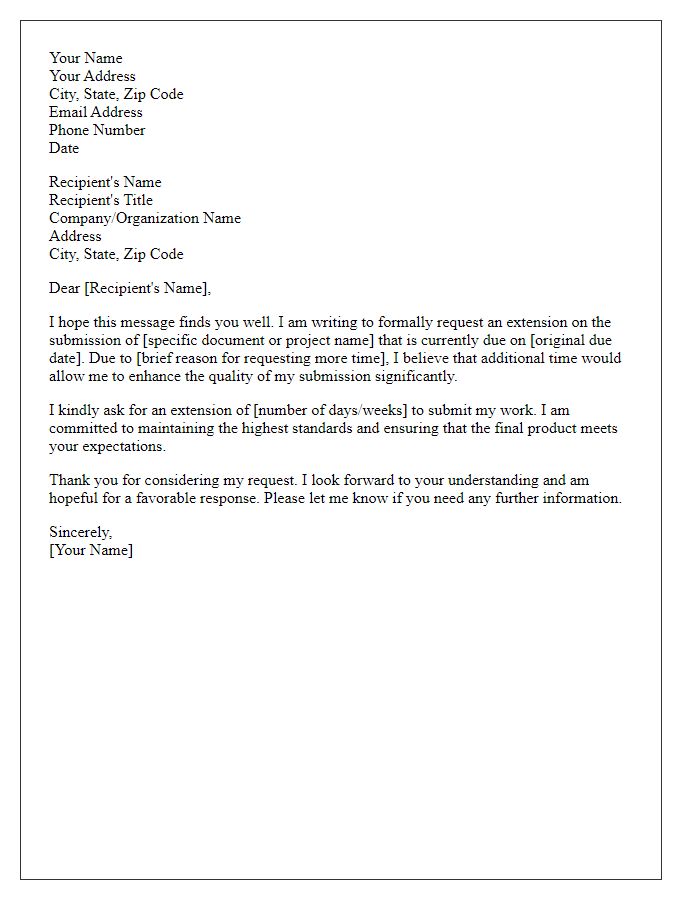
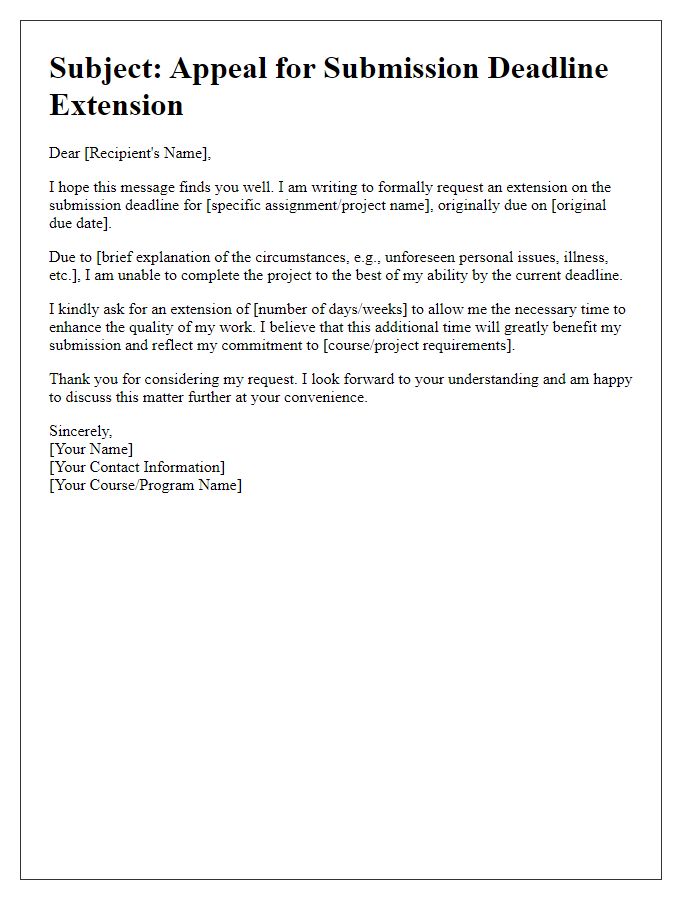
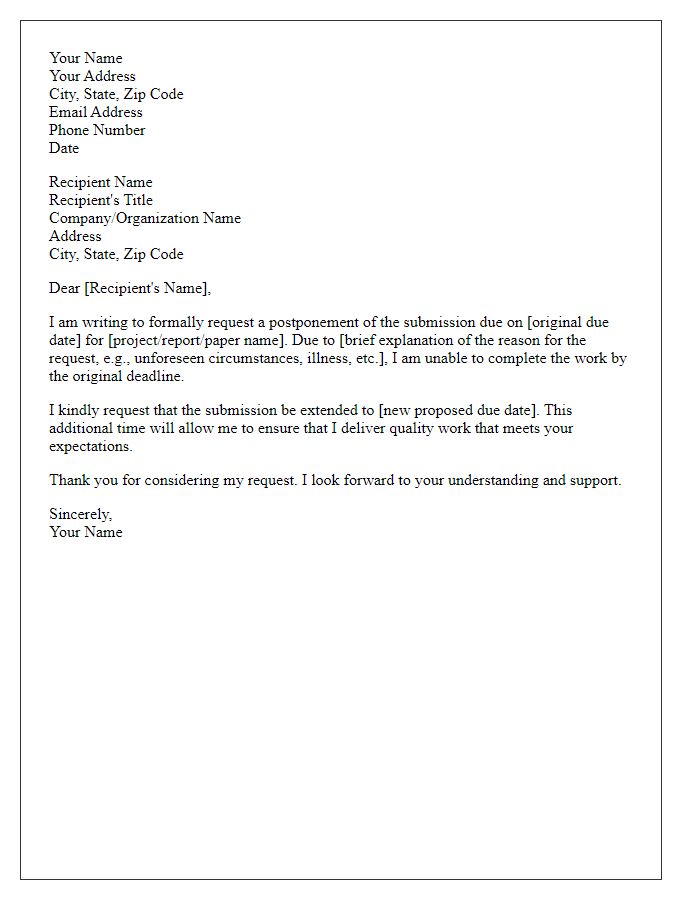
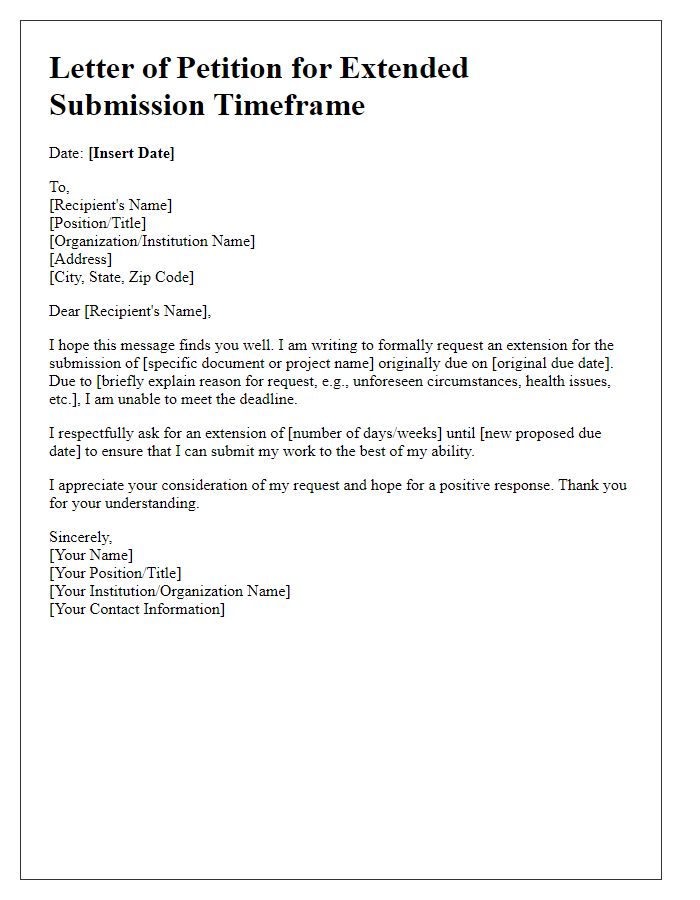
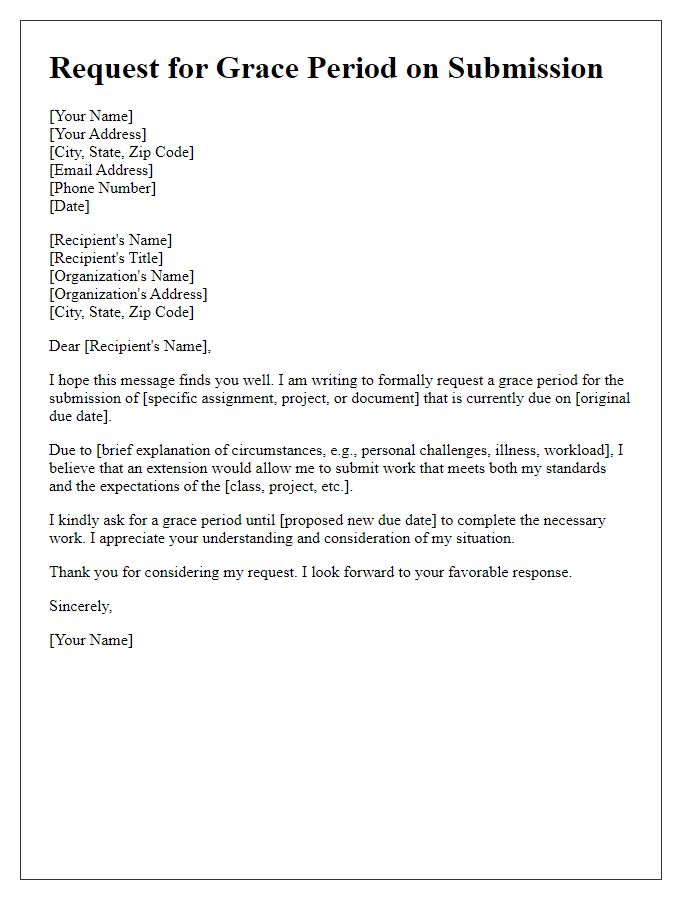


Comments